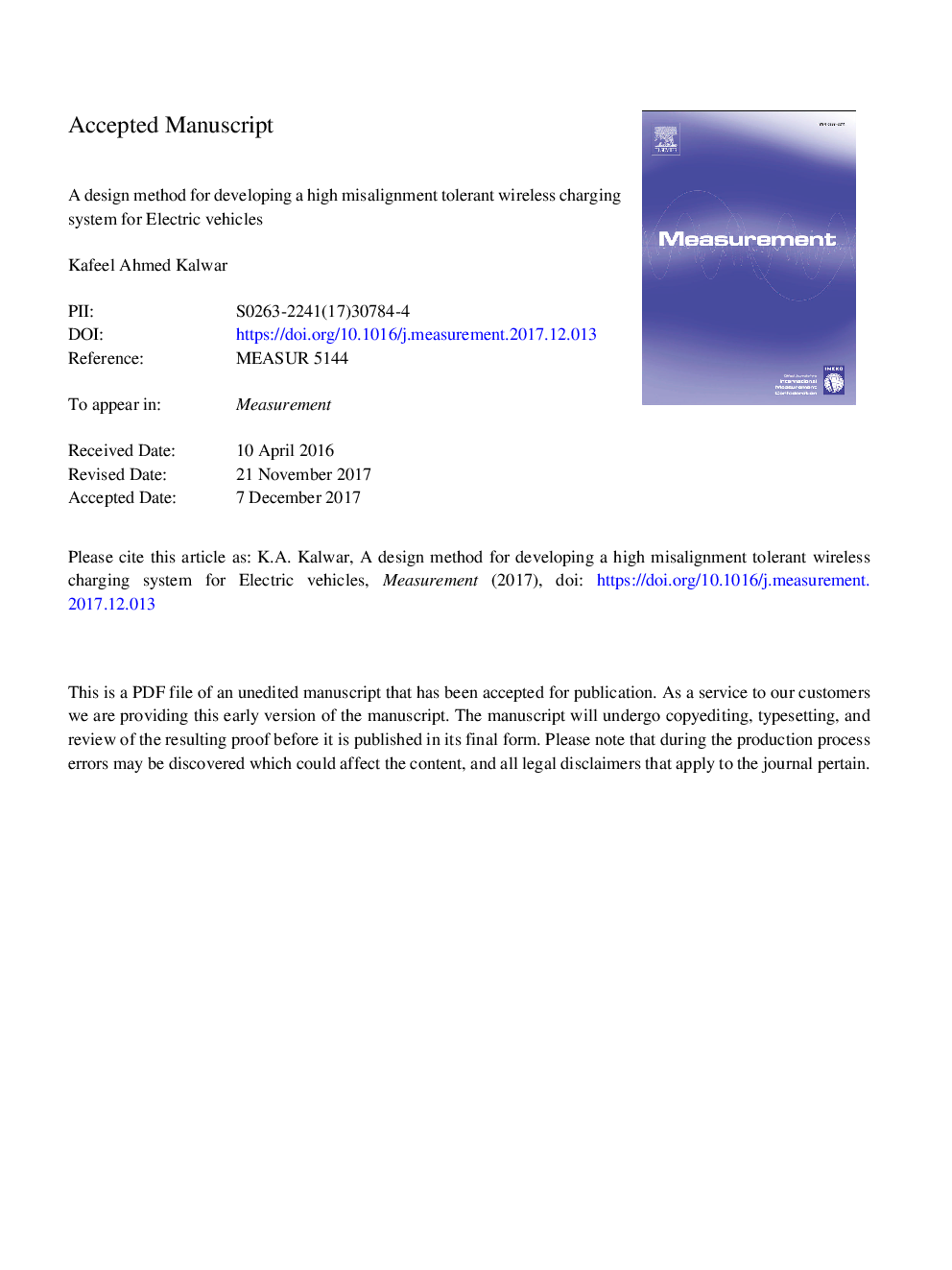ترجمه فارسی عنوان مقاله
یک روش طراحی برای ایجاد یک سیستم شارژ بی سیم با برد بالا برای وسایل نقلیه الکتریکی
عنوان انگلیسی
A design method for developing a high misalignment tolerant wireless charging system for electric vehicles
| کد مقاله | سال انتشار | تعداد صفحات مقاله انگلیسی |
|---|---|---|
| 143094 | 2018 | 24 صفحه PDF |
منبع

Publisher : Elsevier - Science Direct (الزویر - ساینس دایرکت)
Journal : Measurement, Volume 118, March 2018, Pages 237-245

